Eco-industrial parks to become inevitable trend
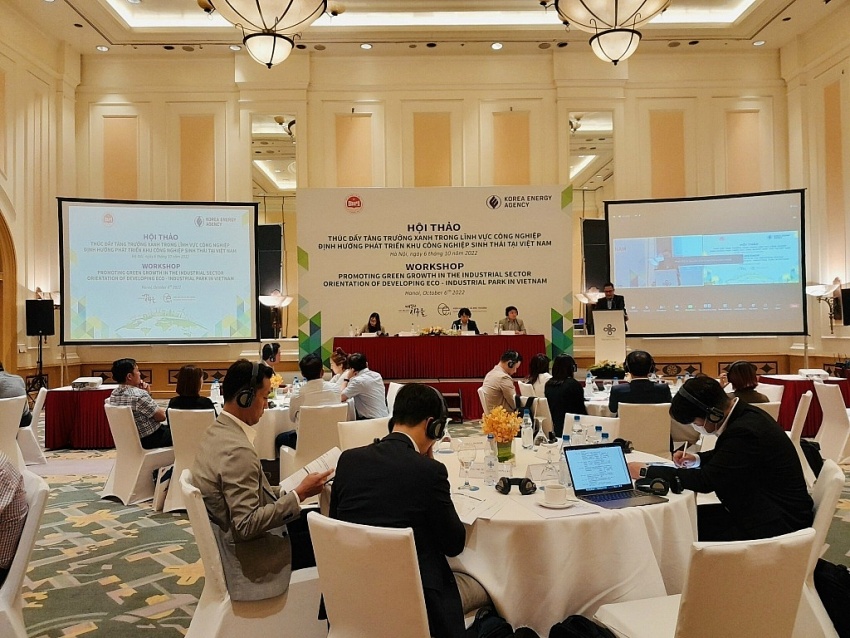 |
On October 6, the Department for Science, Education, Natural Resources and Environment under the Ministry of Planning and Investment cooperated with the Korea Energy Agency and Verywords – a company that provides carbon-neutral solutions – to organise a conference on promoting green growth in the industrial sector with the orientation of developing eco-industrial parks (IP) in Vietnam. The conference was organised along the framework of the National Strategy on Green Growth for the 2011-2020 period, vision to 2050”.
The participants discussed the strategy and policy for developing infrastructure in eco-IPs in Vietnam. It was an occasion for enterprises to study the partners, which specialise in developing infrastructure for eco-IPs, as well as the opportunities for cooperation between domestic and South Korean enterprises.
In mid-July, Decree No.35/2022/ND-CP stipulating the management of industrial and economic zones officially came into effect. The decree stipulates that eco-IPs participate in cleaner production and efficient use of resources, are linked, and cooperate in production to realise industrial symbiosis.
Vuong Thi Minh Hieu, deputy director of the Economic Zones Management Department under the Ministry of Planning and Investment (MPI) said that the ministry is cooperating with other ministries and relevant authorities to build the circular guiding the implementation of Decree 35.
“Regarding the orientation of the circular, the Ministry of Natural Resources and Environment will study regulations relating to guides for treating, recycling, and reusing the waste in eco-IPs, which complies with the legal framework about environmental protection,” she said.
Hieu added, “Other ministries and relevant authorities will be in charge of guiding the reuse of waste, surplus water, and energy at ecological ones, which are under their management.”
| Before Decree 35, almost all eco-IPs in Vietnam were implemented under a pilot model. |
Before Decree 35, almost all eco-IPs in Vietnam were implemented under a pilot model. In 2020, the MPI in collaboration with the United Nations Industrial Development Organization (UNIDO) and the State Secretariat for Economic Affairs of Switzerland launched the model on eco-IP intervention in Vietnam, utilising perspectives from the Global Eco-IPs Programme.
The scheme is implemented in five localities until next year and is the result of previous successful cooperation between 2014 and 2019, which brought a significant boost in policy development and innovative technologies and practices.
Various solutions for resource efficiency and cleaner production were implemented under the framework of the pilot initiative, which led to avoiding emissions worth 32,000 tonnes of CO2 every year.
Nguyen Tram Anh, the national project officer of UNIDO, said there were many surprises during the pilot of switching the traditional IP to ecological ones.
“For example, the process to change Phu Khanh IP in Ninh Binh province to an ecological model, capturing the CO2 emissions from the Ninh Binh Fertiliser Plant to become the fuel for other factories in the IP, was a new idea compared to the initial plan,” Tram Anh said.
“Besides this, when we changed DEEP C IP to an eco-IP, we saw the opportunity to build a symbiosis chain between the IP and an urban area,” she said.
Participants admired the important contribution of developing eco-IPs to the national target of reducing greenhouse gas emissions as well as the benefit of businesses – which are members of symbiosis relationships in ecological ones.
However, there are many barriers to expanding eco-IPs across the country. Tram Anh said that an eco-IP is a new definition, thus it takes a lot of time and effort to communicate work to real estate developers and manufacturers.
“In addition, the implementation of this model requires a large investment capital, while this is a weakness of domestic enterprises because the participants are mainly small and medium-sized enterprises,” Tram Anh said.
Moreover, according to reflections on authorities’ IPs and economic zone, Vietnam has no special preferential financial mechanism to encourage the implementation of eco-IP initiatives. The investors also face psychological barriers and lack management capacity and experience, making them confused about their investment decision.
The story of Hoa Khanh IP in Danang, which was changed to an eco-IP, is an example. Tran Van Ty, the deputy head of the authority of the Danang Hi-Tech Park and Industrial Parks, said that they established two symbiosis chains in Hoa Khanh IP. At present, they cannot expand the symbiosis chain because the land has been exhausted.
“We proposed to have a preferential mechanism for manufacturers in IPs, such as tax and financial incentives, to encourage them to join the symbiosis chain,” Ty said.
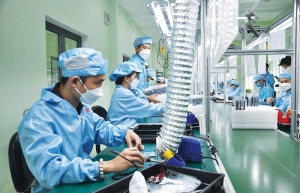 | Danang high-tech parks achieving wider attention High-tech parks are becoming a stronger lever to drive Danang’s economic growth. |
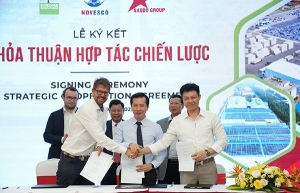 | Haiphong promotes renewable energy investment in industrial parks The event, which took place on the morning of June 29, is the concretisation of the sustainable development strategy of Haiphong's marine economy to 2030, with a vision of 2045. |
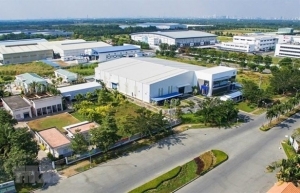 | Mekong Delta province's industrial parks prove irresistible to investors Industrial parks and clusters in the Mekong Delta province of Tien Giang attracted more than 834 billion VND (35.4 million USD) in the first eight months of this year, according to the province People’s Committee. |
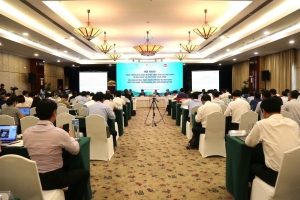 | Vietnam to encourage eco-industrial parks with international support Vietnam will continue to encourage investors to both develop eco-industrial parks and transition traditional to ecological ones. |
What the stars mean:
★ Poor ★ ★ Promising ★★★ Good ★★★★ Very good ★★★★★ Exceptional
Related Contents
Latest News
More News
- Sembcorp Development secures licence for VSIP in Khanh Hoa (December 31, 2025 | 18:54)
- Prodezi Long An advances towards integrated eco-centric industrial park model (December 26, 2025 | 11:16)
- Amata to develop $185 million Amata City Phu Tho (December 23, 2025 | 17:49)
- Work starts on Nhat Ban – Haiphong Industrial Zone Phase 2 (December 19, 2025 | 16:43)
- Becamex – Binh Phuoc drives sustainable industrial growth (November 28, 2025 | 15:22)
- South Korean investors seek clarity on IP lease extensions (November 24, 2025 | 17:48)
- CEO shares insights on Phu My 3 IP’s journey to green industrial growth (November 17, 2025 | 11:53)
- Business leaders give their views on ESG compliance in industrial parks (November 15, 2025 | 09:00)
- Industrial parks pivot to sustainable models amid rising ESG demands (November 14, 2025 | 11:00)
- Amata plans industrial park in Ho Chi Minh City (November 04, 2025 | 15:49)

 Tag:
Tag:




















 Mobile Version
Mobile Version